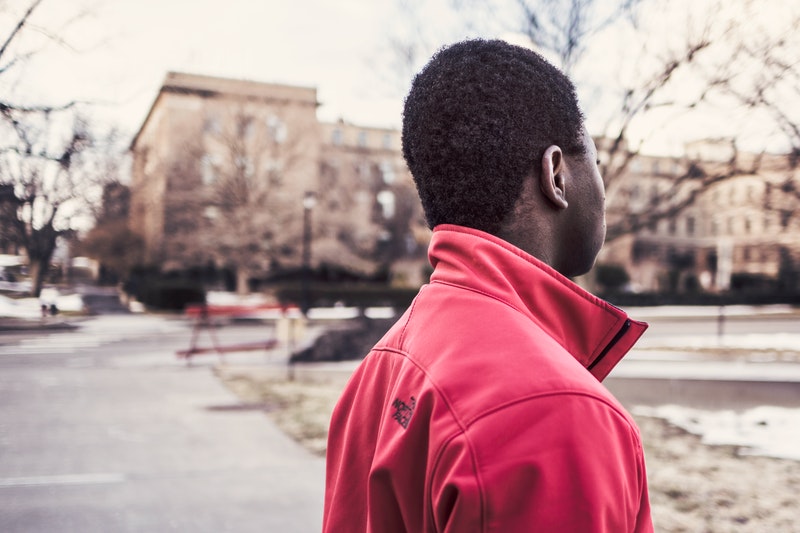I’m not sure how it happened, but this summer marks 35 years since I left school and spent my holidays getting ready for university. I’m pretty confident it’s been a decade at the most since I tried to work out how to pack my record player, my Wham and Spandau albums and my entire collection of colourful sweatshirts and matching socks into my Dad’s Ford, but the diary (and my music taste) says different. Therefore I am absolutely not the person to write about tips for starting university. Instead I’ve asked my friend Anna’s daughter Izzy (currently a 4th year student) to write her own advice for starting uni, with the benefit of her much more recent hindsight!
(For more from Izzy, and from Anna on teenage parenting visit the Equipp blog. And if they need a break from planning, here are 75 fun things for teenagers to do during their final summer at home.)

10 things I wish I’d known before I started University
(… by a university student).
Writing a blog post of this sort is always challenging. With so many different universities, and so many students sharing very different experiences, it might be quite challenging to write a list of definitive advice on how to prepare for university. I could of course tell you my own personal ten things I wish I’d known, but this would be very specific to me and my uni. There’s also loads of advice for students starting university out there already, but often these can miss the more niche aspects of the experience. So I’ve tried to create a broader list of ten things I wish I’d known before starting at any university, but also advice that you can only get from an actual student having almost completed uni themselves. If you’re nervous about university, read on…
1. You don’t really “leave the nest”
Depending on how you feel about your family, this might be great news or terrible news. Now, this obviously depends on how close your uni is to home, but for the most part even if you’re quite far away, if you really wanted, you could go home quite frequently. If you didn’t want to, you don’t have to. But even if you spent the entire term at uni and never visited home once, there are still more weeks of holiday than there were at school (you’re at school for 40 of the 52 weeks on average, whereas you’re at uni for just 30 in a year). Once you have your own house in second and third year, you could obviously spend the entire year there if you really wanted. But very few people I know do this; the vast majority return home pretty frequently, and are definitely there for most of the holidays. And more often than not these days, most move back in with their parents after university anyway.
Of course, going to uni is a big deal, and it will probably be the longest amount of time you’ve spent away from home. It’s very different to going home after school every day, and I don’t deny this for a second. But I think the cliché idea that at the age of 18 you properly spread your wings and “leave the nest” is entirely incorrect; this doesn’t really happen until you are completely financially independent, and have your own job, and, most importantly, place to live, which usually isn’t until your mid-20s.
2. When you’re dropped off, it is quite scary
Hopefully, the last point might have reassured any nerves about leaving home. That being said, the feeling you get when you are first dropped off at university is incredibly unique. Everyone told me it would be scary and strange, but I’d moved schools for sixth form – and the school I moved to was over an hour’s commute away, compared with my previous school which was a 15 minute walk away – so I had already experienced a big change, and had to make new friends, and so on. But when your parents get all your stuff out the car, help you put it in your room, then hug you goodbye and leave, you really do feel so alone and helpless.

Don’t fear, because as soon as you go to your flat kitchen in your hall to socialise with your new flatmates (who have all just felt the same – literally everyone does), this feeling goes away immediately. So it’s a very fleeting experience. It is seriously intense, though, and I have never felt anything like it (even going to Australia for a year abroad was not the same!) I would also recommend unpacking immediately to make your room feel more homely – I sort of left it all in bags because I wasn’t really sure what to do with it (or myself), and this meant that I didn’t end up properly unpacking for two weeks (only because as soon as I went to my kitchen to meet people, I got so caught up in the social life that I ended up being too busy to do so!).
3. Most universities are pretty similar
I asked my brother recently where he would choose to go to university now (other than where he currently is), and his answer was “to be honest, I don’t think it matters that much; all unis are the same”. Don’t get me wrong, choosing specific universities to apply to over others is important, and different universities will undoubtedly offer different experiences. But at the end of the day, everyone who goes to any university does a fair amount of work, can find a really good group of friends, goes to the library a lot around exams season, and can go out loads and have an amazing social life. There’s a reason meme pages like Student Problems exist; students are, more often than not, all the same, meaning where they end up to study doesn’t really matter too much.
Obviously, you’ll likely have to do more work at a top 10 uni – and more still at Oxbridge – but every uni offers clubs and societies you can join where you will end up finding a great social group. At every uni you’ll be able to find where you fit in. But where you go just might determine how long it takes you to find where you belong. Also, every uni is located near some nightclubs, and even if those clubs are bad, going with your friends makes it a massive laugh wherever you are.
For this reason, don’t choose a uni just because it has a banging nightlife. Genuinely, the deadest uni can be seriously fun – as with everything in life, it’s what you make of it. Also for this reason, I wouldn’t worry too much about the campus vs city distinction. I remember when I was applying to uni, this was, for some reason, a massive deal, and all unis would advertise if they were campus/city based on the positives of each. It genuinely makes very little difference to the overall uni experience.
Finally, don’t worry about where you end up living. When I was applying for first year accommodation, I thought it was en-suite or die. But I ended up in my fourth choice for accommodation, which was shared everything, pretty much. Yet it was the most social accommodation there, and I couldn’t be happier that it was where I ended up. Again, you think this is something that will make a huge difference before you go to uni, but I promise when you’re there it doesn’t matter all too much.

4. Don’t worry about who you live with
In a similar vein, don’t worry too much about who you live with. General advice usually tells you that you probably won’t make your best friends in your first week of uni. However, you might be lucky and meet your best friends on the first night (this actually happened to me with one of my friendship groups). But your flat might not be your people at all, it might take you a bit longer to find people you really get along with, and that’s okay. I didn’t meet one of my best friends from uni until half way through term 1, and another took until the very end of the first term. Hell, I didn’t meet course mates I liked until the second term! The great thing about your social life at university is that you will meet people and make new friends the whole way through.
This also means that you might meet people who you think will be your best mate, but they turn out to be not as great as you thought. This happens to everyone, and so is completely normal. Go into meeting new people with an open heart, but don’t completely set yourself on anyone too quickly, because otherwise drawing away from them once you realise they’re actually not the yin to your yang can be slightly awkward.
The other thing I’d say about making friends at uni is to try and make as many as possible at first. You’ll probably leave university having 3-5 really close friends who you genuinely love. But like I said, at first, meeting new people can be daunting, and working out who these people are can take a while, and you will make mistakes along the way. To avoid being left completely alone at any point, try and have different friendship groups in different areas: course mates, flatmates, mates you know from school and their uni mates, sports/society mates, and so on. This might sound odd, but it’s sort of like applying for jobs; apply for 10 and get 1 or 2 offers, apply for 30 and get 5 or 6 offers. I know this sounds like an almost clinical way of going about friendship, but you’ll realise once you get to uni that you usually do end up knowing so many people you have to prioritise who means the most to you.
5. You actually will learn and grow as a person
I hit puberty pretty early, and was quite mature for my age, so my best friend (who’s a few years older than me) jokes that I was “fully cooked” age 15. And to be honest, I think I thought the same. But I definitely wasn’t, and I’m still not! I thought I was pretty socially and politically aware when I left school, but uni really does make you more woke. When I think about it now, it’s obvious – you’re mixing with loads of different people from different backgrounds and cultures, so you of course have to learn and understand more about people and be more sensitive to why they might have certain views/opinions/beliefs. And your own opinions might change quite a lot. Some might not, but everyone will learn so much that they didn’t know before. And most, therefore, probably do leave uni as a much more mature, well-rounded person than they were before they arrived.
This goes for your degree too, by the way. I took the Pre-U course of the subject I study at uni, meaning I didn’t find it quite as challenging as some of my peers in first year. But in my second and third year, I realise how much even an extra year of reading, learning, discussing, practicing, and so on, had helped me to improve. Even if you’re not sure you want a career in the subject you study, it’s nice to know you will be somewhat more of an expert on it than you were before.

6. Drinking at uni – you have just as much fun getting tipsy as you do getting blackout
Everyone knows about the alcohol consumption among university students. The British university drinking culture really is huge, especially within societies, and especially within sports clubs. You don’t have to drink at all at uni if you don’t want to – everyone respects sober members of clubs, and if they don’t (shame on them), they’re probably not the right club for you anyway. That said, here are some tips for Fresher’s Week, when you definitely might feel the pressure to drink.
If you do choose to drink, you will undoubtedly have a few messier nights at uni – it’s bound to happen when you’re out at least three nights per week. But for the most part, you have control over whether you’re someone who gets binned, or someone who gets super binned every single time. Getting blackout drunk just means you remember nothing. This might lead to some amazing stories, but most of the time it just leads to pure embarrassment. Also, it means you actually don’t remember the genuine fun; in a way, it’s like you may as well have not gone on the night out at all, and not spent all the money on pre-drinks, the journey there, entry, drinks inside, and the huge Maccies you had after that, that you don’t remember the joy of eating. Not to mention the terrible hangover you have the next day, all caused by events you don’t even remember.
Drinking is really fun, but getting blackout drunk actually isn’t. Getting on a good level and staying there for a whole night, though, is a trick the vast majority of people leave uni still having not mastered. So don’t fret about this one too much. Just remember that once you feel like you’re really drunk and having so much fun, instead of having another drink to continue the fun (that is how you got there, after all), maybe hold off on the next drink for a little while.
7. Join societies and actually go to the socials
I’ve mentioned societies and clubs throughout this entire blog post, so it’s probably no surprise that this is a top tip. But it’s such an important one. In the first week, the number of different societies might feel overwhelming, and I know I simply paid for the basic society memberships and joined all of those which were free. But I never went to any socials. Luckily, I joined the hockey club and ended up spending most of my time going to training and socialising with members, but I wish I had expanded my circles even more and actually gone to the, for example, Raising & Giving socials I was invited to.

Going back to my earlier tip to make as many friends as possible, it’s a great idea to join a number of societies and try them all out, before having to choose one or two that you prioritise (because you can only do so much with your spare time). My two closest friends from uni I met through hockey, rather than through my flat or course.
Joining a society and going to a social where you know no one is scary. If you’re really nervous, try and get one of your flatmates or course mates who might also be interested to go with you. But if you can’t find anyone, do go by yourself. The clubs are trying to get as many freshers to join as possible, so all of the members are likely to be lovely to you, especially having once been in your shoes and knowing what it’s like. And if for some reason they’re not, don’t go back! You’ve got nothing to lose but everything to gain by joining a club and going to the socials.
8. Take care of yourself
With the world slowly becoming more aware and accepting of mental health issues, this might seem like an obvious one. But I didn’t realise before I went to uni just how damaging the culture can be for both physical and mental health. For physical health: drinking so often and all the junk food that comes with it; flat takeaways; complete freedom over your food shop for probably the first time ever; perhaps less time, or less priority, for physical exercise – the “freshers fifteen” idea that you gain a substantial amount of weight when you first join uni is not baseless. And for mental health, it is known that university can be an especially difficult place, especially when you first go, simply because it is such a huge change, and if you’re unlucky with friends at first, this can become even tougher.
Physical health wise, as long as you’re conscious, you’ll be fine. It does eventually calm down (a little) after the first term, and especially after the first year. If it’s important to you, you can definitely be careful enough to prevent gaining weight. More importantly, though, it’s possible to remain healthy (or, at least, as healthy as possible), as long as you’re aware. You don’t have to be super-duper careful or anything (that’s no fun at all), but just making a few small changes here and there will make all the difference.

And this is the same advice I would give for mental health. Something as small as, for example, keeping a consistent skincare routine, can make a massive difference. This sounds easy, but with a hectic social life and new busy schedule, it can be more difficult than you’d think to keep up! But it’s so important that you do. Obviously, it’s a brand-new start, but it is important to keep some things you liked to do intact. And taking care of yourself so that you feel confident and positive will make a huge impact on coping mentally.
The other most important advice I want to give is that all universities will have mental health services. My university has so many for freshers, including for our accommodation, our student union, a personal tutor for you to talk to, an external mental health service that resides on the campus, as well as the main university services themselves. And remember, if you try all of this and none of it is helping or working for you, universities are far more understanding than schools regarding mental health issues. So you can always choose to take a term off, a year out, or even drop out if it’s really not working for you. Mental health should be as important as physical health; if you’ve broken your leg, you can’t run for a while. If you’re struggling mentally, and there are some things you can’t do, generally other students will be incredibly understanding, so don’t worry.

9. Bring a mattress topper
So I know this isn’t as serious as the rest of them, and so might not be worthy of a whole “things I wish I’d known” but oh my GOD it’s makes such a difference, genuinely. Life-changing stuff.
And honestly, anything you bring that can enhance your life and give you home comforts is amazingly helpful. Make your room your own, bring as much stuff as will make you feel at home. Just make it as easy for yourself as possible.
10. You learn on the job
I’m really hoping that these tips for students starting uni, or deciding which uni to go to, will help. However, no advice you read is going to magically make the experience seamless. The best thing about going to uni is experiencing it for yourself, complete with the ups and downs that come with it. And when you finish, I’m sure you’ll have your own list of 10 things you wish you’d known. Everyone’s different (thank god, it would be so boring if we were all the same!), and so everyone’s time at uni will be different. It will always be a roller-coaster, but hopefully I’ve just made the ride a little less bumpy for you. Good luck!
What do you think? Do you have any other tips for starting university?
Equipp create inspiring, thoughtful gifts for teenagers. If you’ve got a teenager, you’ll know how difficult they can be to buy for, especially some boys. I know that whatever teenage birthday I’m facing, Equipp will definitely have something that will work. They also have lovely advice for parents of teens on their blog and Instagram page.
THANK YOU FOR READING
If you’ve enjoyed this post and found it useful here are some ways you can say thanks and support Actually Mummy:
- Click here to buy me a virtual coffee.
- Join our Teenage Kicks Facebook group which includes lots of advice and support for parents of teenagers. You can post your own problems and advice here too.
- Click here to leave a review of the Teenage Kicks podcast.
- Click here to sign up to our newsletter packed with tips, ideas and support for parents of teens.
- Share this post with your friends.
- Follow me on Facebook, Instagram or Twitter.
This is such a useful article for any parent or prospective uni student to read.
Thank you, will definitely be sharing it with my son, his friends and other parents of teens!
Thank you! All credit to Izzy for giving it so much thought!
These are such brilliant tips! What a great piece Izzy has written. I can’t believe this will be relevant to me in a couple of years when J will be old enough for uni – eeek!!! I remember my own first day at uni all too well. One of the biggest things that helped me was receiving a letter in the post during week 1 (bearing in mind emails and other forms of e-communication hadn’t really begun properly back then). My own family hadn’t thought of writing but luckily I had an awesome pen friend who was a couple of years older and she knew how important it was to receive that letter in that first week so she had written to me. I met Richard within the first few days and here we are 24 years later!!!
Oh what a lovely idea to have a letter! Marking that one down for when mine head off – same timings as you I think!
What a brilliant post, although it made me quite emotional, because it reminded me of what a bloody awful time I had at uni. I will be checking back in a couple of years and sharing this with number 2 son, who wants to do medicine at uni.
Oh Sarah I know how hard it was for you. Sadly it’s not always the dream it’s sold as and I think we owe it to our kids to help them realise that it’s okay not to have the time of your life at Uni!